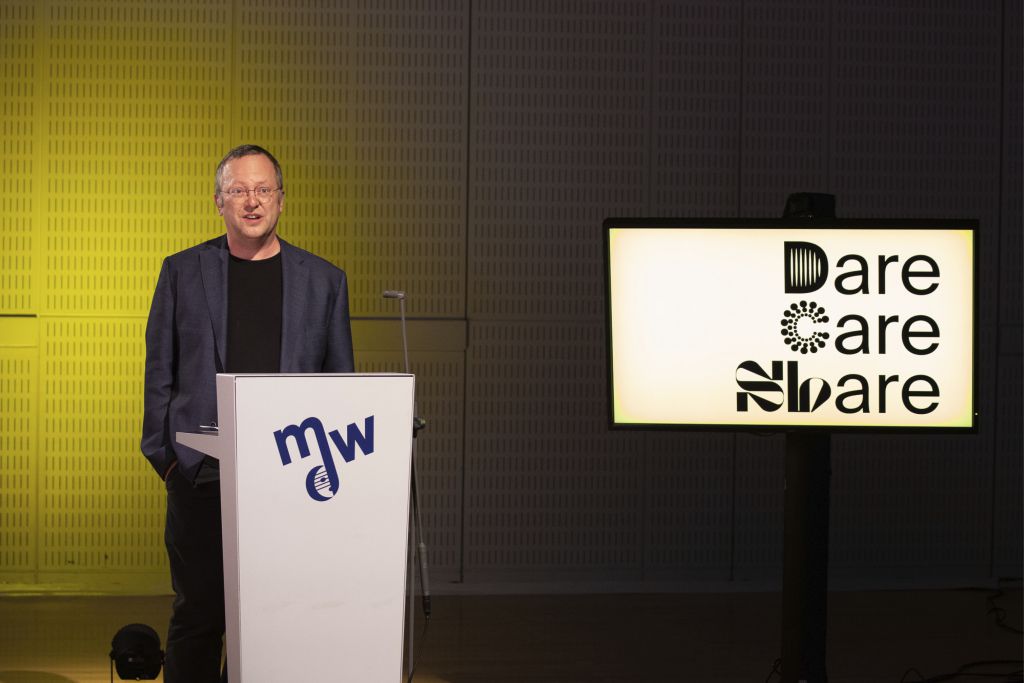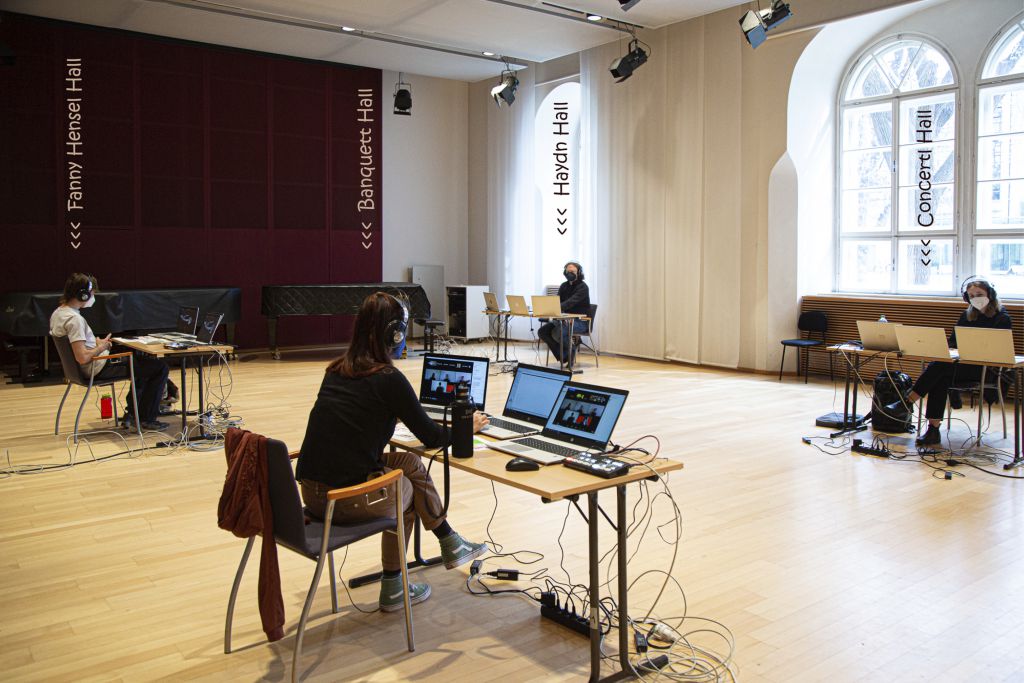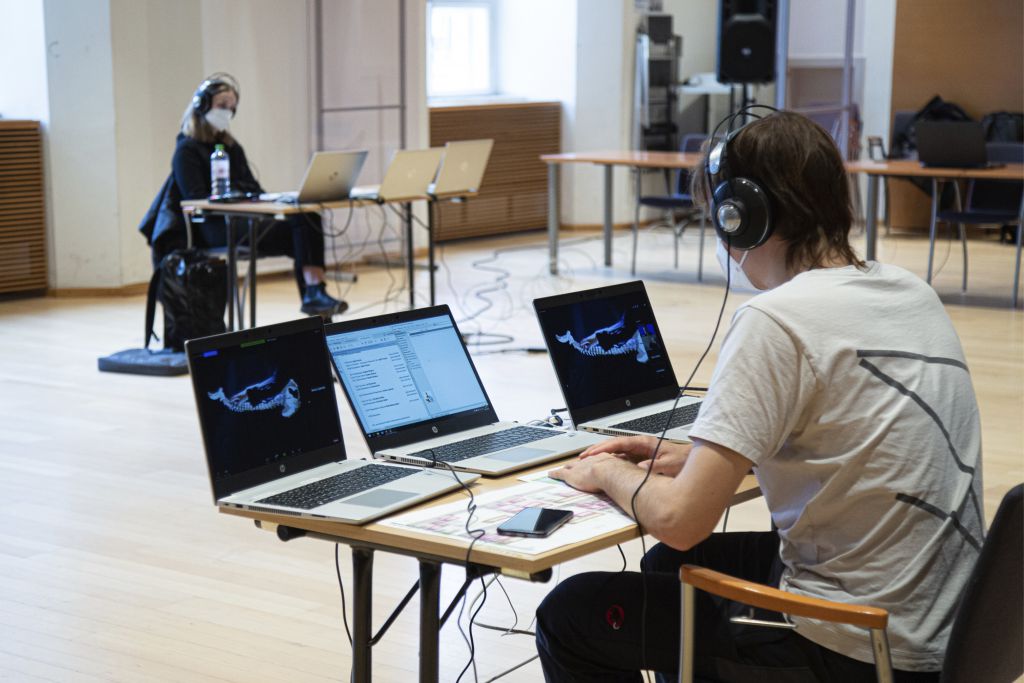The Diversity of Artistic Research
From 7 to 9 April 2021, the mdw hosted the 12th annual conference of the Society of Artistic Research (SAR) as a live and online event in cooperation with the University of Applied Arts Vienna and the Academy of Fine Arts Vienna.

Using a “web campus” developed specifically for the purpose, 525 participants from all over the world took part in this conference, whose three keynotes as well as over 40 contributions—oriented toward the three thematic attractors “care”, “dare”, and “share”—encompassed current artistic research trends from all around the world and made for three highly intense days during which these could be exhaustively discussed and reflected upon. To an extent greater than in most conference formats, this event provided generous opportunities for exchange, with each contribution being allotted roughly equal time for presentation and subsequent discussion.
The fact that the annual SAR Conference had to be realised in an entirely digital format for the first time presented a special opportunity to facilitate global participation, thereby involving new geographic regions that might have been at a disadvantage due to insufficient resources (such as travel budgets) if the conference had been held in its usual format.

This regional diversity—in terms of both conference contributions and participants—enabled one of the conference committee’s goals (expansion of the conference’s geographic and substantive scope) to be realised to a particularly great extent. This concern was also reflected by the keynotes, which staked out the associated territory in an exemplary manner:
Emma Cocker (associate professor of fine art, Nottingham Trent University) portrayed how artistic research can invite or encourage an attitude of openness—in the research process itself and in sharing processes and outcomes, toward others and the world, and toward the practice of life. The aspects of collaboration and shared exploration as well as the return to community play prominent roles, here.
Liza Lim (professor of composition, Sculthorpe Chair of Australian Music, Sydney Conservatorium of Music), used her keynote to emphasise the inseparability of ontology, epistemology, and research ethics, something that she exemplified by way of an eco-sensitive analysis of her own composition Sex Magic for contrabass flute, electronics, and kinetic percussion installation. In doing so, she introduced epistemic challenges related to ecological concepts of sovereignty. Starting from the fact that art frequently serves indigenous cultures as a form of knowledge, as law, or as an ecological encyclopaedia of sorts, she dealt with artistic modalities of knowledge.
Thereafter, in the keynote of Jyoti Mistry (professor of film, University of Gothenburg), epistemological questions of artistic research and its socio-political integration were made explicit—in particular in terms of viewing artistic research from the perspective of the Global South’s colonial history. Can decolonial theories facilitate a revitalisation of artistic research by involving epistemologies that have been ignored or suppressed in Western artistic practice? Mistry presented strategies of epistemic disobedience as well as de-institutionalised artistic forms and experiments as a filmmaker and researcher in which she makes visible the history and stories of marginalised and/or oppressed peoples. In doing so, her work to re-contextualise material from historical film archives is among the gambits of a decolonial strategy, a political practice-poiesis aimed at re-attaining certain images and positions that would otherwise remain invisible.

Even just an attempt to sketch out the diversity of the contributions that made the 12th SAR Conference a comprehensive panopticon of current artistic research would far exceed the scope of this article—not least because the requirements of a digital conference spurred on the contributors to develop their own original solutions for presenting their research. The diversity of the content and forms of presentation that were offered here made a strong impression on the participants and left them with an abundance of inspiration, and a summary will soon also be released digitally in the form of a collective presentation on SAR’s “Research Catalogue” platform.
The challenge of holding this SAR Conference in an entirely digital manner resulted in a new format that, indeed, palpably lacked—and hence highlighted the importance of—the experience of meeting physically in one place. But on the other hand, it did highlight interesting possibilities of digital and global exchange in the field of artistic research that may also provide valuable impulses for future networking and collaboration. And finally, the intense collaboration between the hosting institutions within the conference committee made an important contribution to the reinforcement of artistic research in Vienna and will lead to further cooperative projects in the future.

